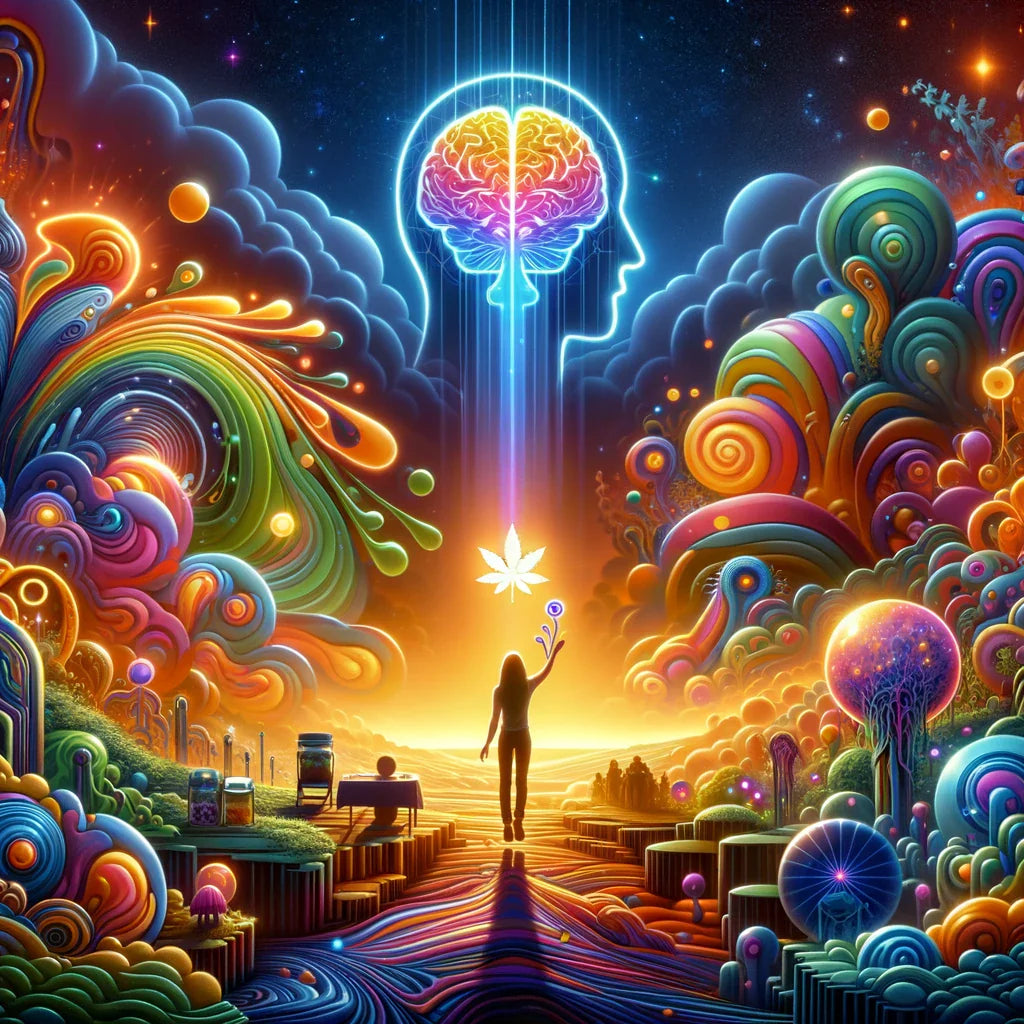
A New Dawn for Psychedelic Therapy in Veteran's Care
In the evolving landscape of mental health treatment, a surprising ally has emerged from the corridors of power: psychedelics. Once relegated to the fringes of counterculture, substances like MDMA and psilocybin are now at the forefront of innovative therapies, particularly for military veterans grappling with the invisible wounds of war. This shift gained momentum during a recent Senate Veterans’ Affairs Committee field hearing in Alabama, where a prominent GOP senator voiced unwavering confidence in expanded access under the Trump administration. As post-traumatic stress disorder (PTSD) continues to plague an estimated 20% of veterans from recent conflicts, the promise of psychedelic-assisted therapy offers a beacon of hope amid staggering suicide rates and treatment-resistant cases. With bipartisan support brewing and clinical trials accelerating, this could mark a pivotal turn in how America cares for its heroes.
Senator Tuberville's Bold Prediction
Sen. Tommy Tuberville (R-AL), a former college football coach turned politician, didn't mince words at the hearing he chaired. "I'm confident that under President Trump, we're going to see expanded access to these therapies," he declared, emphasizing the urgency driven by personal anecdotes from veterans. Tuberville revealed that numerous veterans have approached him privately, sharing stories of traveling overseas to countries like Mexico for treatments involving ibogaine—a potent psychedelic derived from an African shrub. These individuals, often desperate after exhausting conventional options, reported profound relief from PTSD symptoms, including reduced anxiety and improved emotional processing. "People are going to Mexico, they're going to other countries to get this therapy, and they're coming back and telling me how much it's helped them," Tuberville recounted, highlighting a grassroots demand that's impossible to ignore. His optimism stems from ongoing collaborations with key figures in the administration, including VA Secretary Doug Collins and HHS Secretary Robert F. Kennedy Jr., both of whom have signaled openness to reform. Tuberville's stance isn't isolated; it reflects a broader Republican pivot toward alternative mental health solutions, especially as traditional pharmaceuticals fall short for many.
Echoes from the Frontlines: Veterans' Personal Stories
The senator's confidence is rooted in real human experiences. Veterans, who number over 18 million in the U.S., face a mental health crisis that's both acute and chronic. According to the VA, approximately 6,500 veterans die by suicide each year—a rate 1.5 times higher than the general population. Many of these individuals have turned to psychedelics out of necessity. A 2024 epidemiological study found that among U.S. military veterans who have used psychedelics, 70% did so for healing or treatment purposes, with 85% reporting significant benefits, such as diminished PTSD symptoms and enhanced spiritual well-being. One veteran, speaking anonymously in related reports, described ibogaine as "resetting my brain," allowing him to confront traumatic memories without the overwhelming fear that had defined his post-service life. These narratives aren't just anecdotal; they underscore a pattern where veterans, frustrated by long VA wait times and ineffective SSRIs, seek underground or international options. Tuberville's hearing amplified these voices, with witnesses like Adam Marr from the Veteran Mental Health Leadership Coalition urging scaled-up pilot programs to make such therapies accessible domestically.
The Science Behind the Psyche: Evidence and Studies
Delving into the research, psychedelics' therapeutic potential is backed by mounting evidence. MDMA-assisted therapy, for instance, has shown remarkable efficacy in Phase 3 trials for PTSD. In one study involving veterans, 67% of participants no longer met PTSD diagnostic criteria after three sessions, compared to just 32% in the placebo group. Psilocybin, the active compound in magic mushrooms, promotes neuroplasticity, enabling the brain to form new connections and reprocess trauma. A 2025 review in the American Journal of Psychiatry highlighted MDMA's role in augmenting psychotherapy for PTSD, with remission rates up to 71% in treatment-resistant cases. The VA itself is leading the charge, funding its first psychedelic study in December 2024 with $1.5 million to explore MDMA for veterans with PTSD and alcohol use disorder. Currently, about a dozen VA clinical trials are underway, including one at VA Bronx Health Care showing promising results for MDMA-assisted sessions. Experts like Steve Levine from Compass Pathways, a biotech firm developing psilocybin therapies, testified that these aren't recreational drugs but controlled, clinician-supervised interventions. Risks exist—such as cardiovascular effects from MDMA—but structured protocols mitigate them, with adverse events rare in trials.
Navigating the Legislative Maze
The path to expansion involves intricate policy maneuvers. The HALT Fentanyl Act, signed by President Trump in July 2025, eases restrictions on researching Schedule I substances, paving the way for broader studies. Bipartisan efforts are evident: Reps. Lou Correa (D-CA) and Jack Bergman (R-MI) introduced a bill in April 2025 allocating $30 million annually for VA research centers focused on psychedelics. A GOP-led House committee recently approved an amendment requiring progress reports on psychedelic pilot programs for service members, though funding battles persist. At the hearing, VA official Ilse Wiechers stressed that any FDA-approved psychedelics would be administered in clinical settings under strict risk evaluation, not as take-home meds. This cautious approach addresses concerns about misuse while prioritizing safety. Witnesses called for congressional funding to train clinicians and prepare infrastructure, estimating that with FDA nods—potentially for MDMA by late 2025—thousands of veterans could benefit annually.
Under Trump's Watch: Expansion on the Horizon
With Trump back in the White House, the administration's pro-veteran rhetoric aligns with psychedelic advocacy. Secretary Collins has been outspoken, noting the need to "heal, not treat indefinitely," and has met with lawmakers to advance trials. Kennedy Jr. aims for widespread access within 12 months, potentially through vouchers covering therapy costs for VA-eligible veterans. This could revolutionize care, especially as studies show psychedelics outperforming traditional therapies in long-term remission. A 2025 GAO report underscores the VA's commitment, planning combined MDMA-psychotherapy for PTSD amid rising demand. Tuberville envisions government-backed programs mirroring successful models in Australia and Canada, where psilocybin is approved for depression. If realized, this expansion could reduce veteran suicides by addressing root causes, fostering resilience through profound psychological insights.
Potential Pitfalls and Ethical Considerations
Despite the enthusiasm, challenges loom. Stigma persists, tied to psychedelics' 1960s legacy, leading to misinformation that Tuberville decried. Not all veterans respond positively; a small percentage experience intensified anxiety or hallucinations. Equity issues arise—will rural veterans access urban clinics? Costs could soar without subsidies, with sessions averaging $1,500 each. Regulatory hurdles remain, as the DEA's Schedule I status complicates research, though the HALT Act offers relief. Ethically, ensuring informed consent and cultural sensitivity is paramount, especially for indigenous-derived substances like ibogaine. Critics argue for more long-term data, noting that while 85% benefit, the rest need alternatives. Balancing innovation with caution will define success.
Towards a Healed Nation
As America confronts its veteran mental health epidemic, Senator Tuberville's confidence signals a transformative era. Backed by science showing remission rates over 60% and personal testimonies from the brave, psychedelic access under Trump could save lives. With legislative wins and administrative will, this isn't just policy—it's a moral imperative. The journey from battlefield trauma to psychedelic healing embodies resilience, offering veterans not just survival, but thriving. In honoring their service, we must embrace bold solutions for a brighter, more compassionate future.
In light of GOP Senator Tommy Tuberville's confidence in expanded psychedelic access under President Trump, D Squared WorldWide is leading the charge in wholesale psychedelic-inspired wellness products. Our premium line, including psilocybin-derived supplements and MDMA-alternative therapies, harnesses cutting-edge research to support veterans battling PTSD—echoing stories of profound healing and reduced suicide risks. Backed by VA trials showing 67% remission rates, our products offer retailers a lucrative opportunity in this booming market.
Partner with us for exclusive wholesale deals on high-quality, compliant formulations. Schedule a call today to unlock your business potential and make a difference!
Reference:
1. Avanceña, A., Kahn, J., & Marseille, E. (2022). The costs and health benefits of expanded access to mdma-assisted therapy for chronic and severe ptsd in the usa: a modeling study. Clinical Drug Investigation, 42(3), 243-252. https://doi.org/10.1007/s40261-022-01122-0
2. Bhatt, S., Armstrong, M., Parker, T., Maviglia, M., Kass, R., Leeman, L., … & Ziedonis, D. (2022). Psychedelic therapies at the crossroads of trauma and substance use: historical perspectives and future directions, taking a lead from new mexico. Frontiers in Pharmacology, 13. https://doi.org/10.3389/fphar.2022.905753
Davis, A., Barrett, F., & Griffiths, R. (2020). Psychological flexibility mediates the relations between acute psychedelic effects and subjective decreases in depression and anxiety. Journal of Contextual Behavioral Science, 15, 39-45. https://doi.org/10.1016/j.jcbs.2019.11.004



